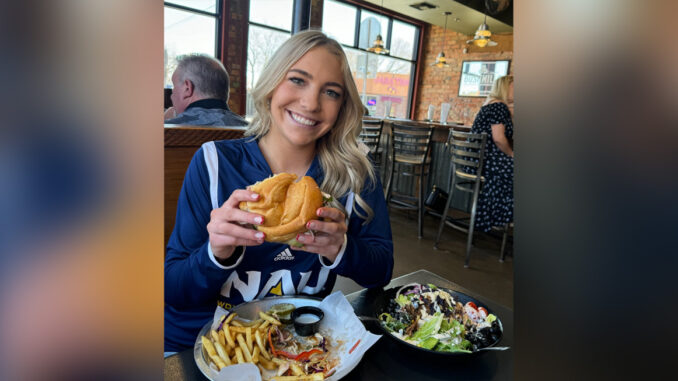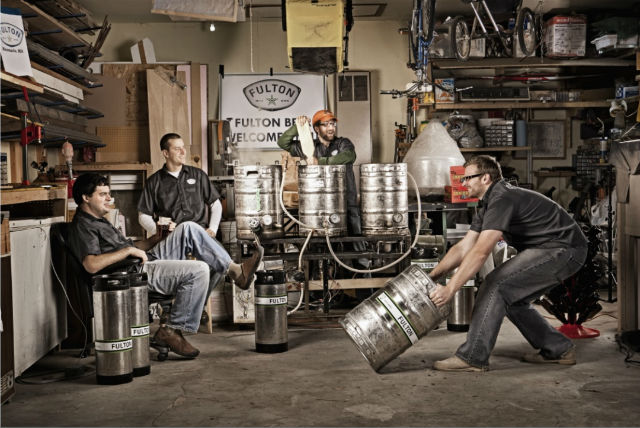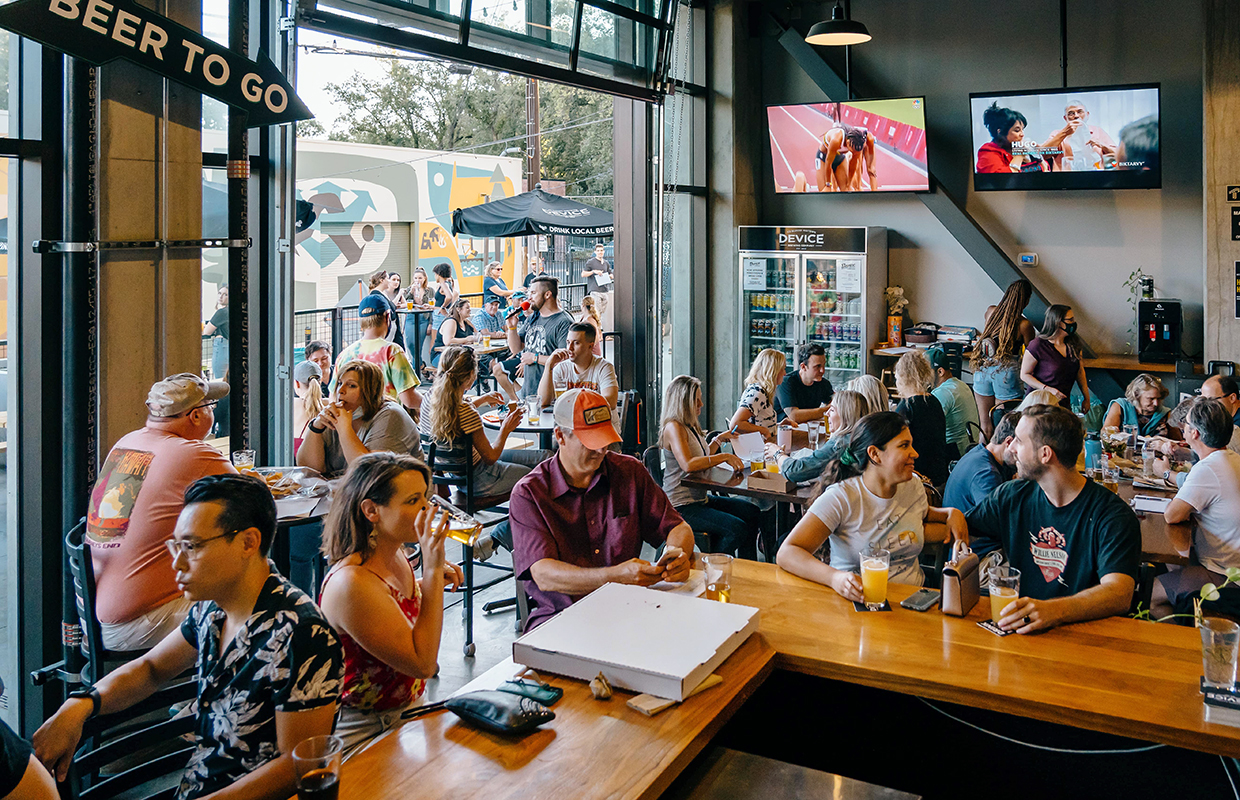
There are new opportunities opening up for breweries through NIL. The “Name, Image, and Likeness” rules that now allow college athletes to partner directly with brands isn’t something any brewery with a nearby college should forego in at least taking a look explains Ken Wilson, the sales manager for Arizona’s Lumberyard Brewing.
For Wilson, who spoke at the 2025 Craft Brewers Conference in Indianapolis, the benefits go beyond marketing exposure. NIL creates a chance for local businesses to connect authentically with their communities while supporting student-athletes who are learning to navigate sponsorships for the first time.
Wilson’s team recently experimented with NIL partnerships earlier this year in the Big Sky basketball tournament, working with a pair of Northern Arizona University players to promote their final games of the season. The campaign tied in with a local retailer, positioning the brewery as a hub to “catch all the Big Sky action.”
It was a simple but strategic approach and one that showed how breweries can drive engagement by building campaigns around shared local pride, not just products.
He emphasized that compliance is crucial.
“You’ll see right on the post, ‘in partnership with NIL,’” he said, noting that disclosure is not optional under Federal Trade Commission guidelines. Paid posts must make it clear that they’re advertisements. It’s a rule that applies just as much to a college athlete promoting a brewery’s restaurant as it does to a celebrity influencer touting a clothing brand.
There’s also the challenge of navigating alcohol-related promotions within NIL’s evolving space. Federal and state laws along with the university’s policies limit how student-athletes can promote alcohol.
The key, Wilson said, is focusing on the experience rather than the beverage.
“We never ask them to promote beer. There’s no beer on the table,” he explained. “It’s just them in the restaurant having lunch, showing support for the local business.”
The NIL marketplace, Wilson added, is surprisingly easy to use once a business registers as a vendor. It gives breweries a way to browse athlete profiles, negotiate deals, and make payments transparently. He’s seen post-season engagement grow, including football players and women’s basketball players reaching out directly for potential partnerships, It’s a signal that NIL deals could become a steady source of local marketing collaborations rather than a one-time novelty.
Beyond Wilson’s direct experience, it’s worth noting that businesses should take a nuanced approach to NIL campaigns. Each state and school has its own rules, and even if an athlete is of legal drinking age, universities may still prohibit alcohol-related sponsorships.
Brands can sidestep these issues by emphasizing nonalcoholic aspects of their operations. Think of other ways, your taproom’s live music lineup, trivia nights, or charitable fundraisers. A campaign might highlight an athlete attending a local event or promoting a cause, rather than a pint. Another practical idea is to structure NIL deals around tangible items or memorabilia rather than direct endorsements. Instead of featuring alcohol, a brewery could purchase a signed basketball or jersey to raffle off, maintaining compliance while showing support for the athlete and their program.
Ultimately, NIL is less about paying for a post and more about cultivating relationships. As Wilson put it, once a business becomes known for supporting student-athletes, the opportunities start coming to them.
If your brewery thrives on community connection, NIL partnerships offer a modern way to strengthen that bond while doing so responsibly, with transparency, and an eye on the long game.






Be the first to comment